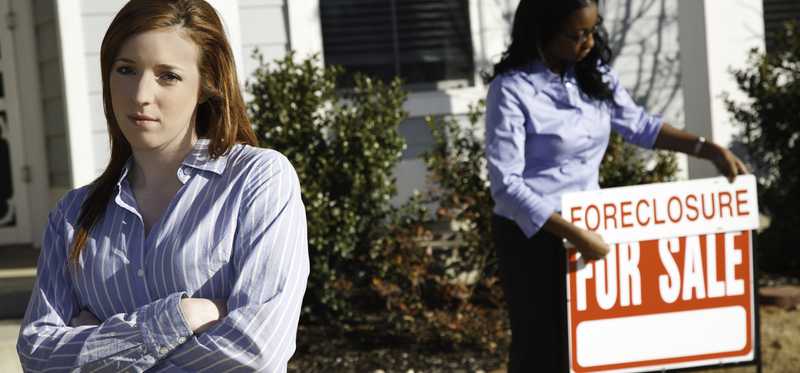8 Ways the Housing Market May Change in 2022

8 Ways the Housing Market May Change in 2022
Ch-ch-changes
The 2021 housing market was one for the history books. Prices skyrocketed, inventory was at record lows, and sellers had the clear upper hand in virtually every place in the nation. And for buyers, it was a challenging one, to say the least.
Fortunately, while 2022's market may bring some similar challenges, it seems the new year has also ushered in quite a bit of change for housing.
Are you planning on buying or selling real estate this year? Here are some changes you might expect along the way.
5 Stocks Under $49
Presented by Motley Fool Stock Advisor
We hear it over and over from investors, "I wish I had bought Amazon or Netflix when they were first recommended by The Motley Fool. I'd be sitting on a gold mine!" It's true, but we think these 5 other stocks are screaming buys. And you can buy them now for less than $49 a share! Click here to learn how you can grab a copy of "5 Growth Stocks Under $49" for FREE for a limited time only.
Previous
Next

1. Things will be a bit less frenzied
The market moved at breakneck speed in 2021. The average home sold in 15 days, home price jumps were in the double digits, and bidding wars were the norm (at one point, 72% of buyers faced them). The result was one of the fastest-moving and toughest seller's markets this country's ever seen.
Though 2022 won't see a complete turnaround from those frenzied days, things should start to moderate a bit, especially with more supply and a possible pullback in demand on the horizon. This should mean less competition, slowing home price growth, and more days on the market in many places.
Previous
Next

2. Mortgage loans will get more expensive
If you're hoping to finance a real estate purchase this year (or refinance), take note: Rates are on the rise. According to Freddie Mac, interest rates on 30-year mortgage loans have jumped 40 basis points in just three weeks. They now clock in at 3.45% -- up from 2.79% just a year ago.
Those higher rates mean a few things. First, homes become less affordable, especially when coupled with rising prices. That might mean buyers should focus on smaller properties (like townhomes) or move their searches further away from costly metros and suburbs. It could also cause a pullback from some buyers entirely, particularly those just on the edge of qualifying.
Previous
Next

3. Home prices will continue to rise but at a slower pace*
Home prices jumped 24% nationally last year, ending 2021 with the highest median sale price on record ($386,000). While prices certainly won't drop in 2022 (that won't happen until a large influx of supply hits the market), there will be one change in the price department: Appreciation will start to slow down.
By most accounts, home prices will rise somewhere between 3% and 7% next year. It's still an increase, but as Redfin's chief economist Daryl Fairweather put it: "If annual price appreciation falls to 3%, it would only be the second time it will have fallen so low since the end of the housing crash in March 2012. This low price growth will likely discourage speculators from entering the market and allow more first-time buyers to have a chance at winning a home."
Previous
Next

4. Inflation may force buyers to the sidelines
Experts project a healthy amount of housing demand for years to come, largely thanks to the massive millennial generation that's aging into its prime homebuying and family-forming years.
One thing that could throw a kink in that demand? Inflation.
According to a recent survey, a whopping 40% of hopeful homebuyers say rising inflation has caused them to either delay their purchasing plans or cancel them altogether. It's just another factor that could lead to a less competitive market and fewer bidding wars as we get further into the year.
ALSO READ: Where to Invest if You're Worried About Inflation
Previous
Next

5. Rents will likely keep rising
Home prices rose significantly in 2021, but so did rents. According to Realtor.com, national rents were up nearly 20% in November, clocking in at an average of $1,771 per month. That translates to nearly $300 more per month compared to last November.
As mortgage rates, home prices, and inflation rise, sidelined buyers will be forced to rent, driving up demand for properties and increasing rents in the process. Experts predict a 7.1% jump in rents across 2022 -- more than the year's expected rise in home prices.
5 Stocks Under $49
Presented by Motley Fool Stock Advisor
We hear it over and over from investors, "I wish I had bought Amazon or Netflix when they were first recommended by The Motley Fool. I'd be sitting on a gold mine!" It's true, but we think these 5 other stocks are screaming buys. And you can buy them now for less than $49 a share! Click here to learn how you can grab a copy of "5 Growth Stocks Under $49" for FREE for a limited time only.
Previous
Next

6. We'll see a bump in new home construction
Construction tapered off considerably after the housing crash of the late aughts. But builders are feeling confident these days (builder confidence reached its fourth-highest point on record in December), and experts predict a notable uptick in new home starts this year.
According to the National Association of Home Builders, housing starts will top 1.1 million in 2022 -- a slight jump over 2021 but a huge one over 2019, when just 889,000 homes were started.
While it will hardly bridge the gap in what Freddie Mac estimates is a shortage of nearly four million homes, it should offer homebuyers and investors more options and, perhaps more importantly, help reduce competition.
ALSO READ: Will 2022 Be a Good Time to Buy New Construction?
Previous
Next

7. There may be more distressed properties hitting the market
Underwater homeowners have been protected for much of the last two years. Thanks to various COVID-19 protections, they couldn't be foreclosed on, despite nonpayment, and most could put their mortgage loans on pause, too.
Those policies have since expired, and many homeowners on forbearance plans are seeing those run out. As that happens, they'll need to catch up on payments, work out a plan with their servicer, sell the house, or face foreclosure.
So far, foreclosures have increased 94% compared to 2020, and as more and more forbearance plans expire, we could start to see those rise even more. While they may not reach historical numbers -- nor anywhere near those of the housing crisis -- this could add an extra infusion of supply into today's inventory-strapped market.
ALSO READ: Mortgage Experts Fear a Foreclosure Wave as Protections Come to an End
Previous
Next

8. Refinances will fall by the wayside
Homeowners refinanced in droves this year -- and it's no wonder why. With mortgage rates bottoming out at 2.65% at one point, there was a lot of incentive to do so.
Next year, though, refis are unlikely to see such a banner year. As interest rates rise, homeowners stand to save less. And when you throw in the rising closing costs these loans are seeing, there's even less reason to refinance. According to ClosingCorp, the average cost to refinance sits just under $2,400 -- up almost 5% over the year.
Previous
Next

Small but impactful changes
This year's housing market won't look wholly different from 2021's, but a few key changes should start to shift things more into balance. For buyers, that will likely mean smaller home-price jumps, less competition, and slightly more properties to choose from overall.
Make no mistake, though: Sellers will still hold the upper hand -- and that's not likely to change anytime soon.
The Motley Fool has a disclosure policy.
Previous
Next
Invest Smarter with The Motley Fool
Join Over Half a Million Premium Members Receiving…
- New Stock Picks Each Month
- Detailed Analysis of Companies
- Model Portfolios
- Live Streaming During Market Hours
- And Much More
READ MORE
HOW THE MOTLEY FOOL CAN HELP YOU
-
Premium Investing Guidance
Market beating stocks from our award-winning service
-
The Daily Upside Newsletter
Investment news and high-quality insights delivered straight to your inbox
-
Get Started Investing
You can do it. Successful investing in just a few steps
-
Win at Retirement
Secrets and strategies for the post-work life you want.
-
Find a Broker
Find the right brokerage account for you.
-
Listen to our Podcasts
Hear our experts take on stocks, the market, and how to invest.
Premium Investing Services
Invest better with The Motley Fool. Get stock recommendations, portfolio guidance, and more from The Motley Fool's premium services.